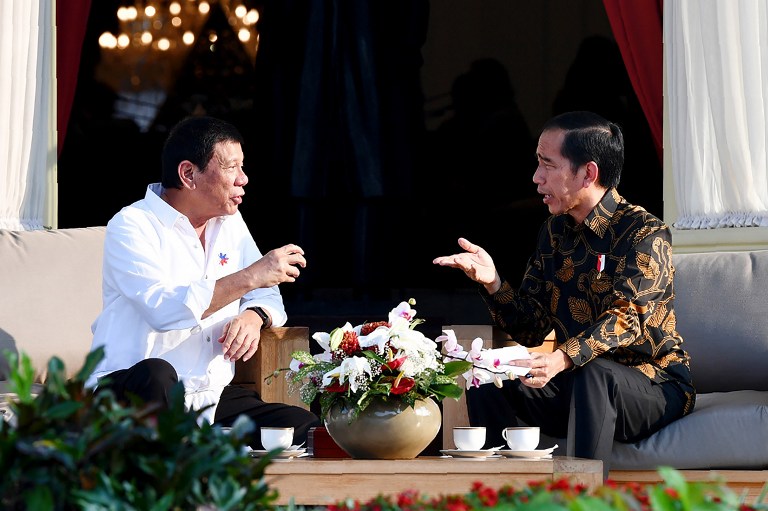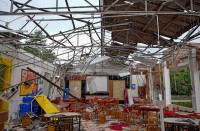
Indonesia and the Philippines on September 9 pledged to ensure security on the high seas after a surge of kidnappings by Islamist militants in the strife-torn southern Philippines. / AFP PHOTO
JAKARTA, Indonesia (AFP) – Indonesia and the Philippines on Friday pledged to ensure security on the high seas after a surge of kidnappings by Islamist militants in the strife-torn southern Philippines.
At least 25 Indonesian sailors and a handful of Malaysians have been abducted this year travelling in the Sulu Sea between Indonesia, Malaysia and the Philippines.
Philippine Islamist extremist outfit Abu Sayyaf, notorious for carrying out kidnappings-for-ransom, has been blamed for the abductions.
Those abducted are typically taken to Abu Sayyaf strongholds in the southern Philippines. Most have been released, with authorities refusing to confirm whether ransoms were paid or not, although a handful of Indonesians are still being held.
After talks with Philippine President Rodrigo Duterte in Jakarta on Friday, President Joko Widodo hailed the neighbours’ “cooperation in guaranteeing security in the Sulu Sea.
“We hope that there will be no more security issues in the Sulu Sea in the future, and we will conduct joint patrols to ensure security.”
Duterte, on his first foreign bilateral trip since winning power in May elections, said the two sides had committed to take “all necessary steps” to ensure maritime security.
“There is a lot of piracy there… it has prevented the two countries from comfortably exchanging commerce and trade.”
In May, Indonesia, Malaysia and the Philippines agreed to launch coordinated patrols of the waters, although the countries are still working out the details.
Abu Sayyaf is a loose network of a few hundred Islamist militants, formed in the 1990s with seed money from Osama bin Laden’s Al-Qaeda network.
Duterte also said that they would work together to tackle the “menace” of illegal drugs, at a time both countries claim to be fighting a war against rising narcotics use.
The Philippine leader is overseeing the large-scale killing of drug traffickers, which has claimed almost 3,000 lives, and sparked a wave of international condemnation.
Since taking power in 2014, Widodo has triggered global anger by stepping up executions of convicted drug traffickers, including foreigners.






